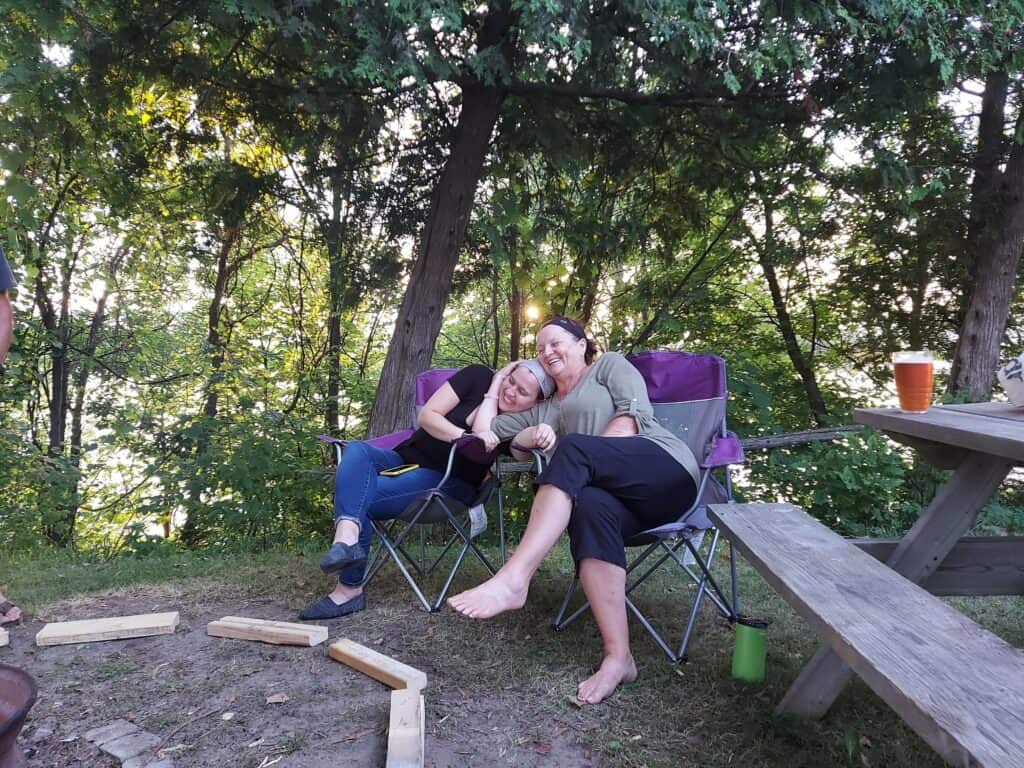
Debbie Legault’s daughter Adrienne was diagnosed with breast cancer in 2019. This is their story in Debbie’s words.
My 27-year-old daughter, Adrienne, was diagnosed with luminal B stage 2A breast cancer in 2019…no family history, no BRCA gene mutation…just the luck of the draw.
I used to believe that breast cancer, if caught early, was a one-and-done. You do surgery and chemotherapy and radiation therapy, then if you survive you ring the bell, go home and go on with your life.
Adrienne’s experience couldn’t be further from that belief. There are still a multitude of physical side effects directly related to her cancer experience that she deals with every day, from lymphedema to brain fog to muscle weakness and fatigue. She is unsure at this point if the medication used to save her life has taken away her ability to have a baby. And her calendar is still full of appointments with oncologists, radiologists, dermatologists, cardiologists…add any -ologist that comes to mind.
Emotional triggers can still drop both of us to our knees. Something as simple as seeing someone wearing a pink ribbon or a beanie to cover a bald head can make both of us struggle to breathe. I still have dreams where I need to run but my legs won’t move when we are waiting for scan results to come back to tell us whether or not the beast is still dead. And every time the phone rings, I center myself in a safe, protective place in case Adrienne is once again going to say “Mom…it’s cancer.”
If you’re a mother who is going to be a caregiver for someone diagnosed with breast cancer, it’s a good idea to frame a cancer diagnosis in the context of being in a recovery program: take it one step, one challenge, one day at a time. There is often no end date to cancer, and if that is your goal, then it can be very difficult when one more thing, and then another thing, and then yet another thing comes along.
I get up every day and think to myself Adrienne doesn’t have cancer today and go on with what I need to do. And if a pink ribbon trips me up a bit, I close my eyes for a second and remind myself of that.
Without the research that has been funded by donations to organizations like Komen, it is likely my child would not be alive today. It’s one thing to look at your own mortality, but it’s very different to hold your child’s hand when they’re going through something like this. I know that this disease could have killed my daughter and still may, but I have hope because that magic elixir may be one researcher’s idea away.
I have no idea what tomorrow will bring, whether the next test result will toss us back into the abyss, but if Adrienne walks in my door today, I can hold her in my arms, breathe her in and make one more memory. And hope that it keeps being a never-ending story.
Statements and opinions expressed are that of the individual and do not express the views or opinions of Susan G. Komen. This information is being provided for educational purposes only and is not to be construed as medical advice. Persons with breast cancer should consult their healthcare provider with specific questions or concerns about their treatment.



